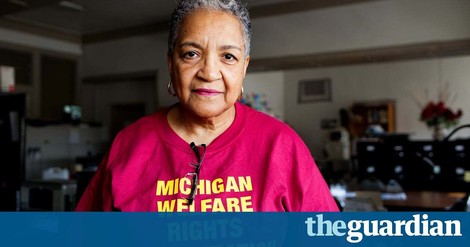Your podcast discovery platform
Curious minds select the most fascinating podcasts from around the world. Discover hand-piqd audio recommendations on your favorite topics.

piqer for: Climate and Environment Global finds
Andrea is a writer and researcher based out of Chicago. Andrea has a Bachelor's degree in environmental science from The Ohio State University and a Master's in Environmental Planning and Management at National Taiwan University, where she specialized in climate adaptation and urbanization. She writes for TaiwaneseAmerican.org, and sends out a biweekly newsletter which includes articles on politics, environment, identity, and intersections of race, class, and gender (http://eepurl.com/bPv-F5).
No Water For Poor People: The Nine Americans Who Risked Jail To Seek Justice
In one of the richest countries in the world, people are being denied access to water. In a country that claims democratic history, these decisions are being made by officials that were not elected. This is the US, and unsurprisingly, the communities being denied water are predominately black. Marian Kramer, a civil rights activist who sat at lunch counters and organized picket lines during the civil rights movement in the 60s, continued her fight for justice for her community's right to water.
Citizens of Detroit were paying fees for water at twice the national average, and this high rate for services was, and still is, putting undue pressure on the city's most vulnerable. "By the summer of 2014, the city of Detroit was roiling with water shutoffs — 3,000 every week — and beginning to attract international attention. Sometimes whole blocks were disconnected in 'militaristic' fashion to those three months late or $150 overdue. But when the mass shutoffs began in that year, they were ordered under the direction of an emergency manager, not an elected city government." The emergency managers were appointed mostly to historically black areas, even as financially distressed white communities rarely came under their purview. Responding to this discriminatory practice, Kramer and eight others were arrested for blocking water shutoff trucks hired by the city when civil disobedience became their last resort.
The prosecution of the activists worked to block any relevant context of the situation from the jury as the defendants gained support from local protesters as well as letters from the UN and other international groups. The protesters wanted a "water affordability plan that would correlate the payment of water to income", which would actually increase the revenue to the city while addressing inequality. The plan was killed by emergency management.
In the end, the activists were released on a technicality, and plan to continue their struggle for the vulnerable.
Stay up to date – with a newsletter from your channel on Global finds.
